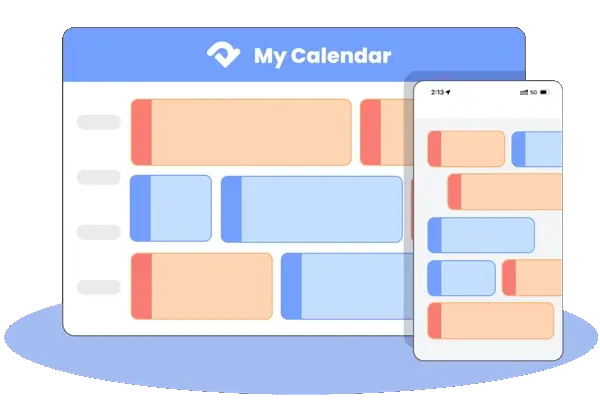Running a successful Airbnb listing is rewarding, but understanding the costs involved is crucial. At the heart of this are Airbnb fees. Knowing exactly what you're paying, why, and how it impacts your bottom line empowers you to price competitively and maximize your earnings. Let's break down everything hosts need to know about Airbnb fees.
What is the Airbnb Service Fee?
Think of the Airbnb service fee as the cost of doing business on the platform. It's how Airbnb funds its operations, covering everything from developing the website and mobile apps you use daily to running the secure payment system that handles guest transactions, providing 24/7 customer support for you and your guests, and investing in marketing to attract millions of potential guests worldwide. This fee is essential for accessing Airbnb's massive global audience and its suite of tools designed to make hosting smoother.
How Much is the Airbnb Service Fee?
This is where it gets interesting. Airbnb doesn't apply a single, fixed percentage across the board. Instead, the structure depends heavily on the fee type you, as the host, have chosen for your listing (more on types next!). However, here’s the general range you need to know:
1.The Dominant Model (Split-Fee):
This is the most common structure. Here, the total service fee is split between you and your guest. As the host, you typically pay a 3% service fee on the booking subtotal (your nightly rate + cleaning fee + any pet fee, before Airbnb fees and taxes). The guest pays the bulk of the service fee, usually around 14% of the booking subtotal. So, for a $100 nightly rate + a $50 cleaning fee ($150 subtotal), your fee would be $4.50 (3% of $150), and the guest would pay an additional service fee on top of the $150.
- Guest View: Guests see your base price (nightly rate, cleaning fee, etc.) plus the guest service fee and any applicable taxes during checkout. This can make the final price seem higher than your initial listing.
- Pros: Lower direct fee burden on hosts (only 3%). Transparent breakdown for guests (though the final price surprise can be a con).
- Cons: The final price guests pay is higher than your base price, potentially making your listing seem less competitive initially compared to listings using the Host-only fee.
2.The Host-Only Fee Model:
Some hosts prefer to simplify pricing for guests by absorbing the entire service fee themselves. If you choose this option, you pay a higher fee, typically around 14-16%, on the entire booking subtotal. Using the same $150 subtotal, your fee would be roughly $21-$24. The guest sees only your set price plus taxes. This model can make your listing appear more attractive upfront price-wise, to guests.
- Guest View: Guests see only your set nightly rate, cleaning fee, pet fee, etc., plus taxes. No separate Airbnb service fee is added at checkout. Your listing price is closer to the final price.
- Pros: Simpler, more attractive pricing for guests (no surprise fee at checkout). It can make your listing appear more competitive on price in search results.
- Cons: Significantly higher fee directly deducted from your earnings (14-16%). Requires careful pricing to ensure this cost is covered without pricing yourself out of the market.
Key Takeaway: The percentage you pay as host (3% vs. 14-16%) depends entirely on the fee structure you selected for your listing. Always check your settings!
Which is Better? There's no one-size-fits-all answer. Consider your market, competition, and guest expectations. If attracting budget-conscious guests with the lowest apparent price is key, Host-only might help. If maximizing your net per booking is paramount and you're in a competitive market where final price comparisons are common, Split-fee is often preferred. Experiment and see what works best for your specific property and goals. You can change this setting in your listing details.
Types of Airbnb Fees
While the Airbnb service fee is the primary cost, there are a few other related fees that may affect your earnings or guest satisfaction:
- Cleaning Fee: Set by the host. This is not part of the Airbnb fee, but it does affect the booking subtotal.
- Value-Added Tax (VAT): Depending on your country, Airbnb may collect VAT on its service fee.
- Currency Conversion Fee: If your payout is in a different currency than the guest’s payment, Airbnb may apply a small exchange rate fee.
- Security Deposits: These are not fees per se, but they do affect guest behavior and can lead to disputes.
How to Smartly Manage Your Airbnb Expenses
While the Airbnb service fee is a major cost, savvy hosts know it's just one piece of the profitability puzzle. Proactive expense management is essential:
- Track EVERYTHING Religiously: Don't just rely on Airbnb payout summaries. Use a dedicated spreadsheet or accounting software (like QuickBooks, Wave, or Xero) to track all income and expenses. Log cleaning costs, supplies (toiletries, coffee), maintenance, utilities (if not included in rent), mortgage/rent, insurance, service fees, and even small purchases like lightbulbs.
- Factor Fees into Your Pricing: This is non-negotiable. Whether you pay 3% or 14-16%, that fee eats into your revenue. Use your expense tracking to understand your true costs per booking and set your nightly rate, cleaning fee, and other charges to ensure a healthy profit margin after all fees and costs. Don't forget potential local occupancy taxes you might need to collect and remit!
- Optimize Operational Costs: Look for efficiencies. Can you negotiate a better rate with your cleaner for regular bookings? Buy supplies in bulk? Switch to energy-efficient bulbs to lower your utilities? Small savings add up significantly over time.
- Understand Tax Deductions (Consult a Pro!): In most jurisdictions, legitimate business expenses for your Airbnb are tax-deductible. This typically includes the Airbnb service fee, cleaning fees you pay, supplies, a portion of utilities, insurance, depreciation on furniture, and potentially even a home office percentage. Crucially, consult with a qualified tax professional specializing in rental income to ensure you claim everything correctly and comply with local laws.
- Review Your Fee Structure Periodically: Is your chosen Airbnb service fee type (Split or Host-only) still serving you best? Monitor your booking conversion rates and competitor pricing. Don't be afraid to experiment if you feel a change might improve performance.
- Plan for the Unexpected: Set aside a portion of your income for repairs, replacements (that coffee maker will break!), and periods of lower occupancy. Treat this reserve fund as a non-negotiable business expense.
- Diversify your booking channels: Don’t put all your eggs in the Airbnb basket. Try listing your properties on other channels or set up your own direct booking engine. Direct bookings can eliminate Airbnb fees, thereby increasing your revenue. Use your PMS’s channel manager to sync calendars and prevent double bookings.
Taking Control of Your Airbnb Profitability
Understanding Airbnb fees, particularly the Airbnb service fee and its different structures, is fundamental knowledge for any host aiming for success. It’s not just about what you pay; it’s about how you strategically incorporate that cost into your pricing and overall financial management. By diligently tracking expenses, setting smart prices that account for fees and costs, optimizing operations, and leveraging potential tax benefits, you transform fee awareness from a burden into a powerful tool for maximizing your rental income. Knowledge truly is profit when it comes to navigating Airbnb fees.

